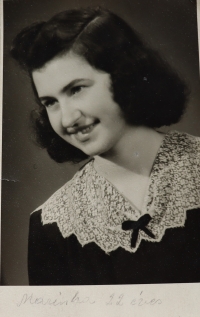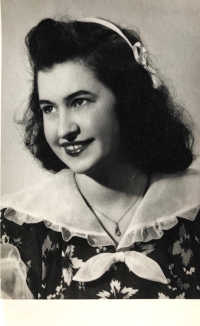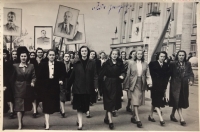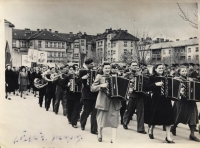We survived not one, but ten Christmases without our father in Mukachevo

Stáhnout obrázek
Mária Blažovská was born in Mukachevo in 1933, when Subcarpathian Rutheria was still part of Czechoslovakia. Her father was the headmaster of the gymnasium. After Subcarpathian Rutheria was annexed to the Soviet Union, he received information from one of his pupils that he might be persecuted, so he decided to move to Slovakia. He went first, the family was supposed to come to him after he find an apartment to live. However, his wife and three small children were not allowed to travel, and the family remained divided for ten years. Only after Stalin‘s death they did get permission and move to Slovakia, where Mária, as a trained pianist, participated in the founding of two music schools. When her brothers, among them the world-famous scientist Mikuláš Popovič, emigrated abroad, she had to attend interrogations and take care of her parents. As a young became widow Her son from the first marriage also embarked on a scientific career. She lives in Bratislava.



